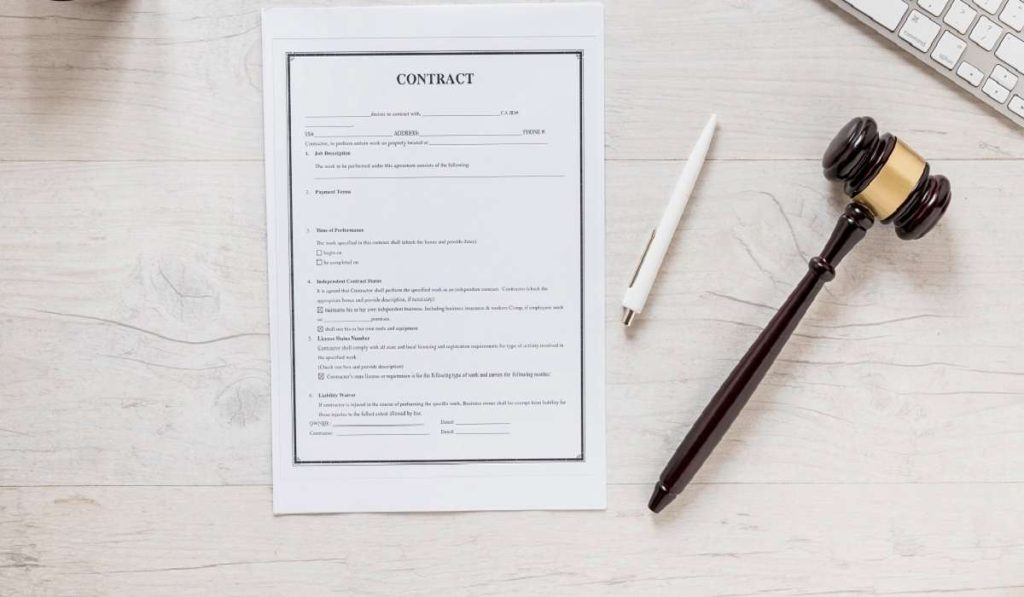
Contracts can be invalidated due to violations of the legal requirements for their form. This issue is governed by specific provisions of the Civil Code of Vietnam. Below is an in-depth examination of the legal framework, circumstances leading to invalidation, and legal consequences when contracts fail to meet formal requirements.
1. Legal Requirements for the Form of Contracts
According to Article 119 of the Civil Code 2015, the form of a contract can vary depending on the nature and requirements of the transaction. Specifically, contracts may be made orally, in writing, or through specific actions that demonstrate the intent of the parties involved. This flexibility allows parties to choose the form that best suits their circumstances and ensures the smooth execution of agreements.
- Contracts via Electronic Means
One increasingly common form of contracting is through electronic means. Under the Law on Electronic Transactions, contracts executed via data messages are regarded as written contracts if they meet the statutory requirements for form and content. This approach not only enhances convenience and efficiency but also ensures the legality and validity of electronically executed contracts.
- Special Requirements for Written Contracts
In certain cases, the law explicitly requires civil transactions to be executed in writing and may further mandate notarization, authentication, or registration. These requirements typically apply to transactions of significant value or those that substantially affect the rights of the parties involved. For instance, contracts involving real estate, land use rights, or high-value asset exchanges must meet these stricter requirements to ensure transparency, legal security, and to minimize potential disputes.
For example:
- Contracts for the Sale of Residential Housing: As per Article 430 of the Civil Code 2015, contracts involving the purchase and sale of housing must be in writing. This requirement safeguards the ownership rights of the parties and prevents legal risks.
- Contracts for Asset Exchange: Article 455(2) of the Civil Code 2015 stipulates that such contracts must be in writing to clearly define exchanged assets and the obligations of the parties.
- Contracts on Land Use Rights: Under Article 502(1) of the Civil Code 2015, contracts involving the transfer, lease, or collateralization of land use rights must be in writing and conform to strict statutory regulations.
These provisions underscore the importance of written contracts in transactions involving high-value or significant assets, ensuring both legal compliance and the protection of parties’ rights.
2. When is a Contract Invalid Due to a Violation of Form?
According to Article 407(1) of the Civil Code 2015, the provisions on invalid civil transactions (Articles 123–133) also apply to invalid contracts. A contract failing to meet formal requirements as prescribed by law may be declared invalid. However, the Civil Code 2015 provides certain exceptions where contracts violating formal requirements can still be deemed valid under specific conditions.
- Exceptions to Invalidity
- Partial Performance of Obligations: If the parties involved have already performed the majority of their contractual obligations, the contract may still be recognized as valid. For example, when at least two-thirds of the obligations have been fulfilled, the court may validate the contract at the request of one or all parties, even if the form violates statutory requirements.
- Non-Compliant Written Contracts: Similarly, if a civil transaction requiring notarization or authentication has been partially performed, the court may waive the requirement for re-certification and uphold the contract’s validity.
These exceptions demonstrate the law’s flexibility in balancing formal requirements with the practical realities of contractual performance. They aim to avoid unnecessary invalidation and mitigate adverse consequences for parties acting in good faith.
3. Legal Consequences of Contract Invalidity due to Form
Under Article 131 of the Civil Code 2015, the legal consequences of an invalid civil transaction are clearly defined to protect the legitimate rights of the parties involved.
- Key Consequences
- No Legal Effect: An invalid contract does not create, modify, or terminate any civil rights or obligations from the time it was executed.
- Restoration of Original State: The parties must return to their original positions by reimbursing any assets, services, or benefits received under the invalid contract. If restitution in kind is impossible, monetary compensation equivalent to the value must be made.
- Retention of Benefits by Innocent Parties: In cases where one party has derived benefits (e.g., profits or interests) in good faith, they are not required to return such benefits. However, any party at fault must compensate the other for damages incurred due to the invalid contract.
- Rights Involving Personal Matters
If the invalid contract pertains to personal rights, such as those involving non-transferable or immutable rights, the relevant provisions of the Civil Code 2015 and related laws will govern their resolution.
In conclusion, the form of a contract plays a critical role in determining its legality and validity under Vietnamese law. While flexibility exists to accommodate the practical realities of contracting, certain transactions require strict adherence to formal requirements. Violations of these requirements can render a contract invalid, but exceptions provided under the Civil Code 2015 demonstrate a pragmatic approach to preserving the efficacy of agreements in specific circumstances. Ultimately, the legal framework aims to protect the legitimate interests of parties while ensuring fairness and transparency in civil transactions.
📞 CONTACT LEGAL CONSULTANT:
TLA Law is a leading law firm with a team of highly experienced lawyers specializing in criminal, civil, corporate, marriage and family law, and more. We are committed to providing comprehensive legal support and answering all your legal questions. If you have any further questions, please do not hesitate to contact us.
1. Lawyer Vu Thi Phuong Thanh, Manager of TLA Law LLC, Ha Noi Bar Association
Email: vtpthanh@tlalaw.vn
2. Lawyer Tran My Le, Chairman of the Members’ Council, Ha Noi Bar Association
Email: tmle@tlalaw.vn.
Dinh Phuong Thao

